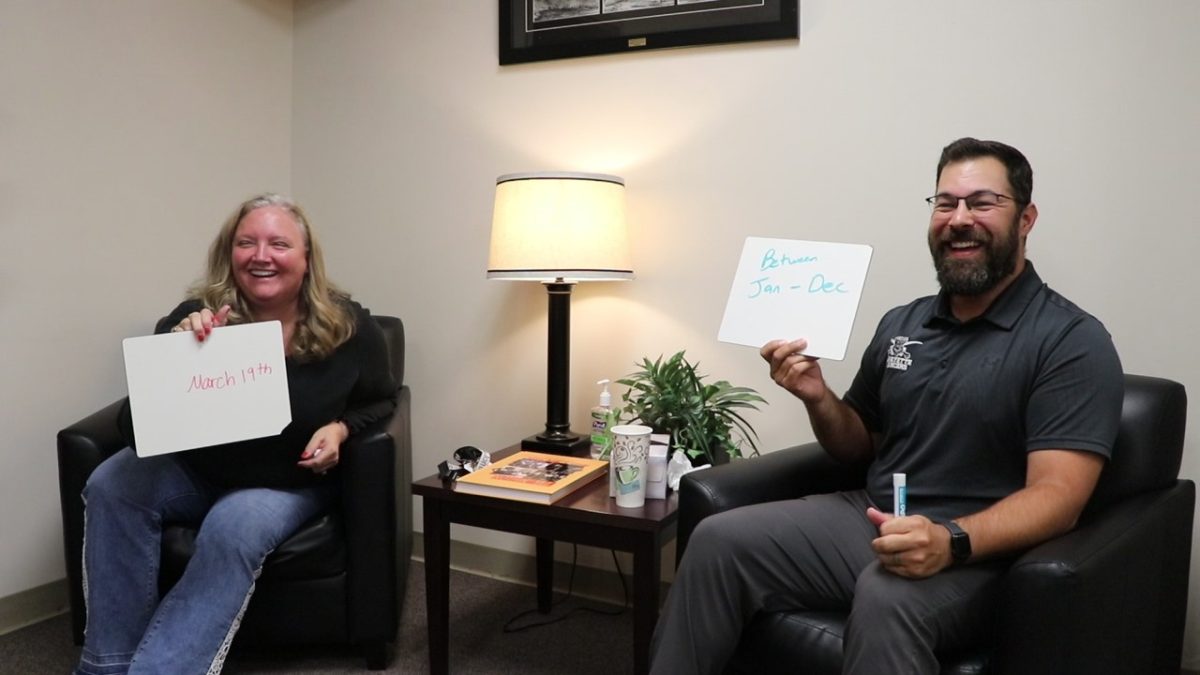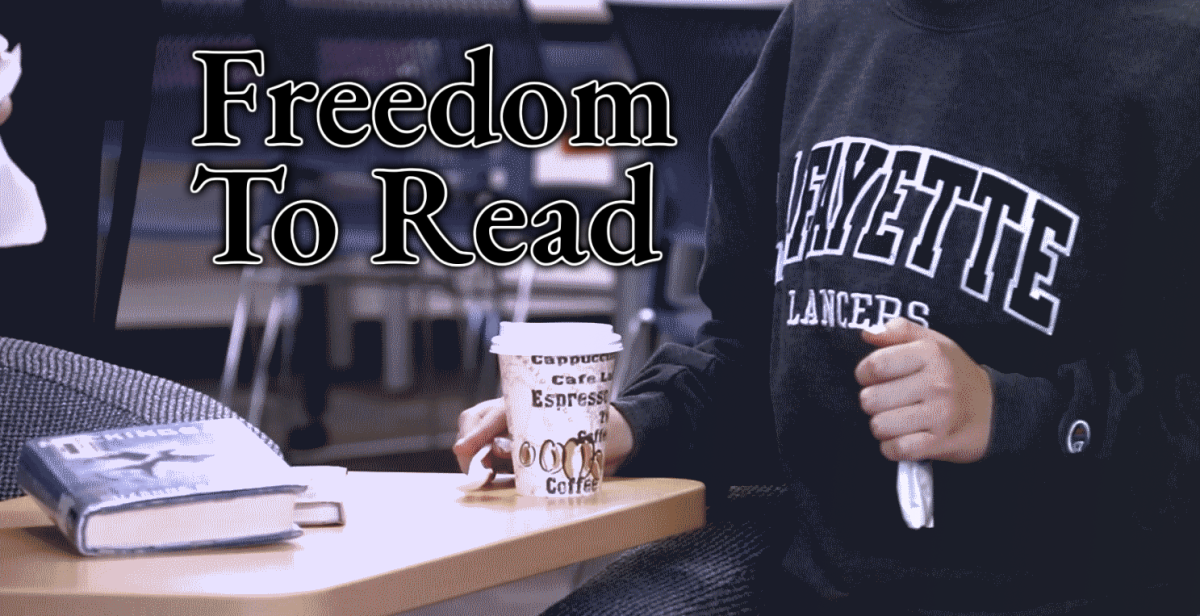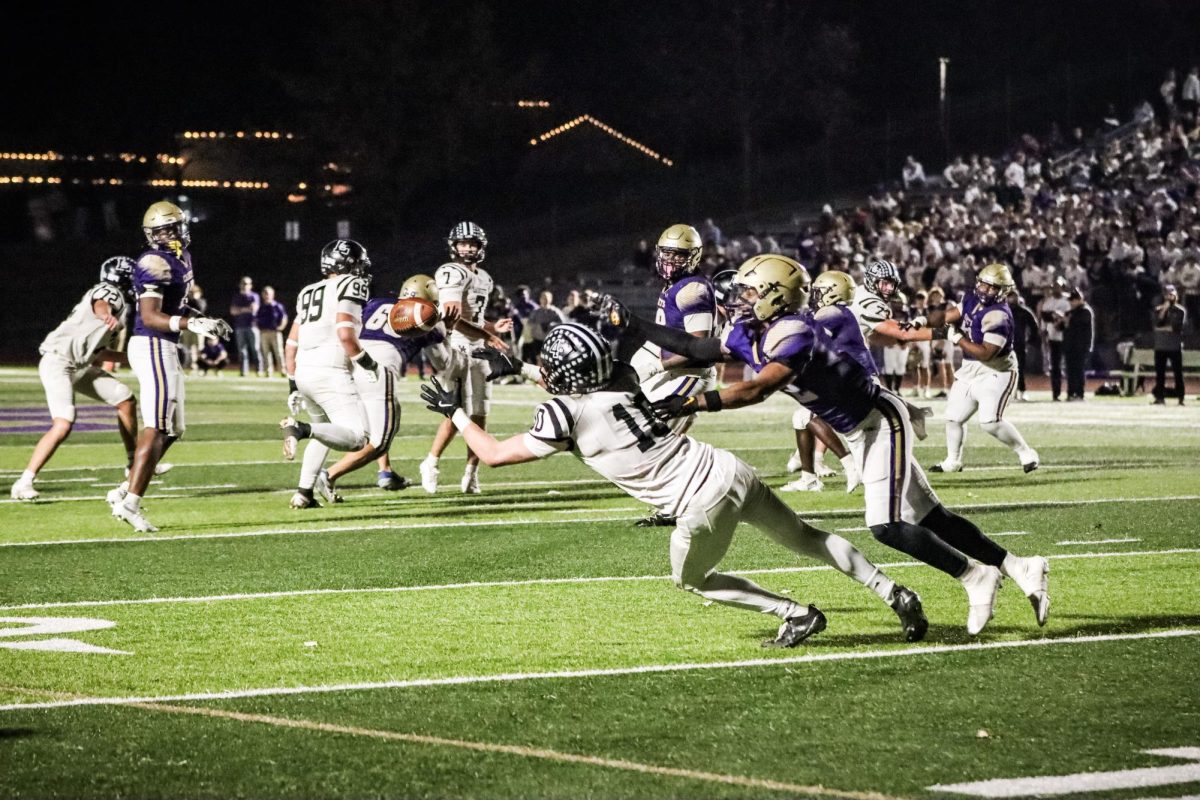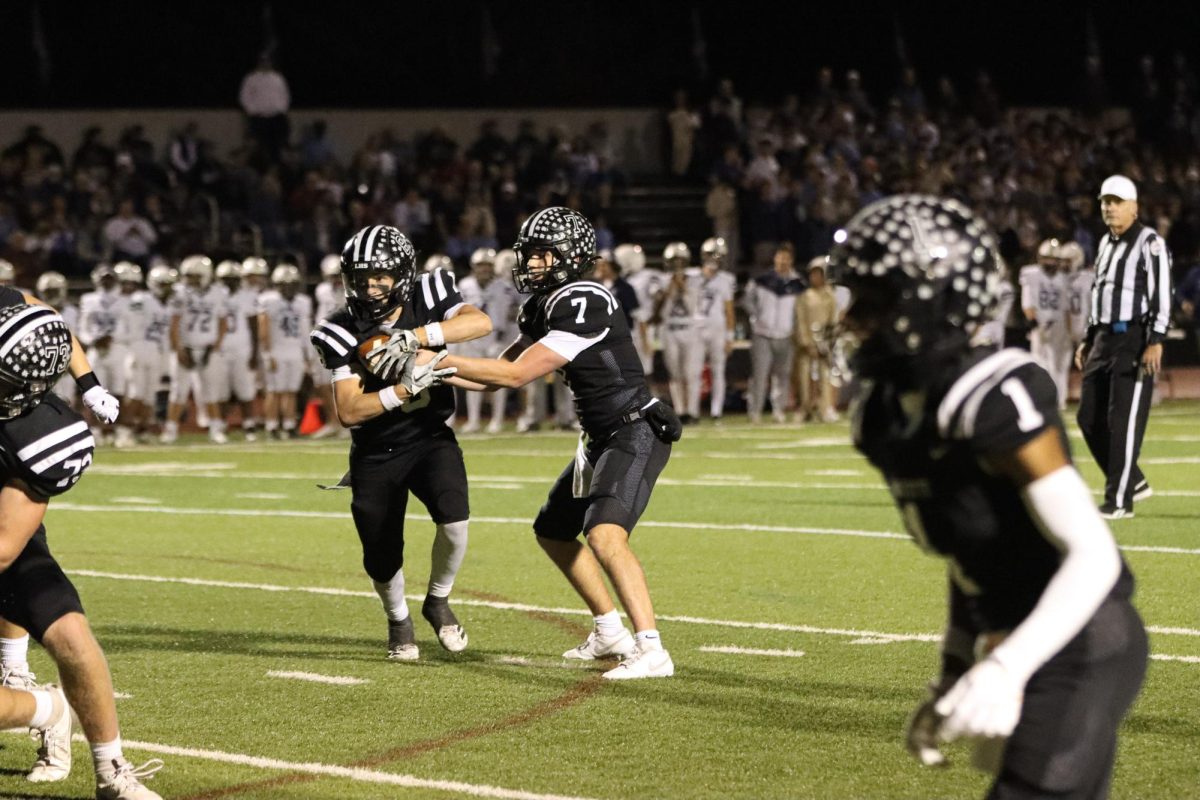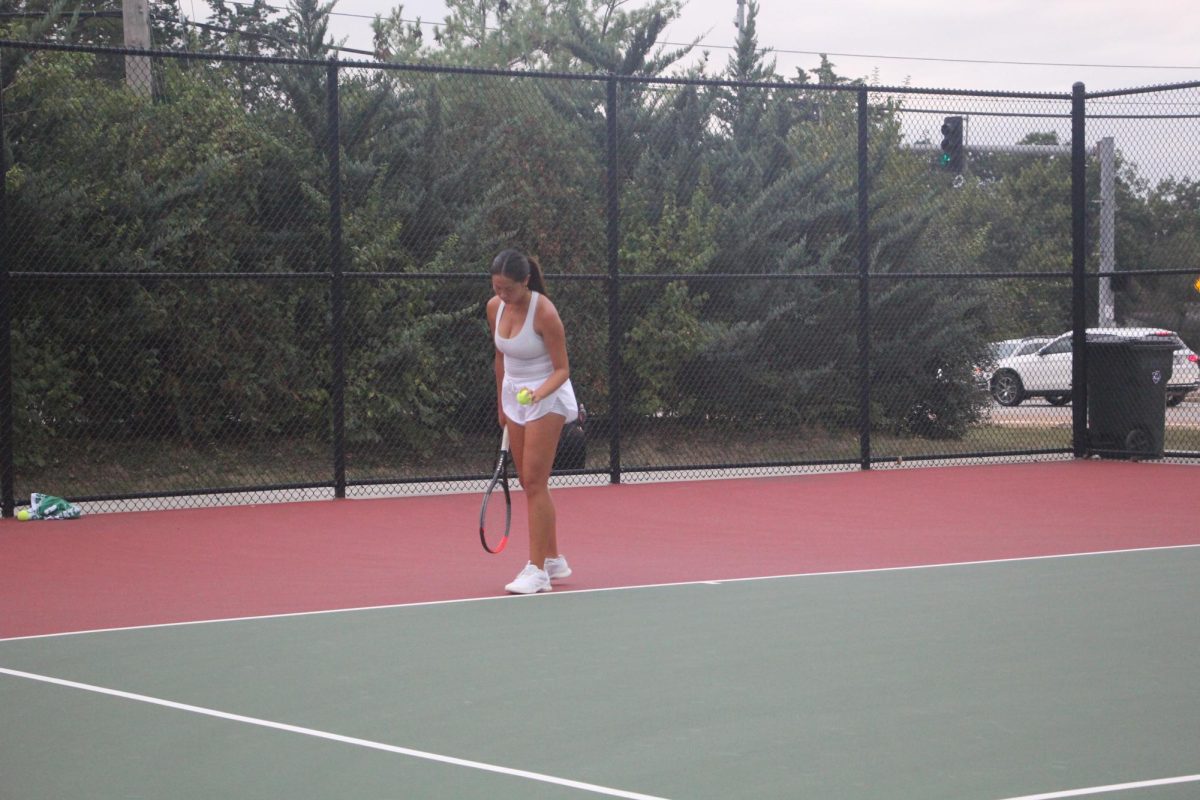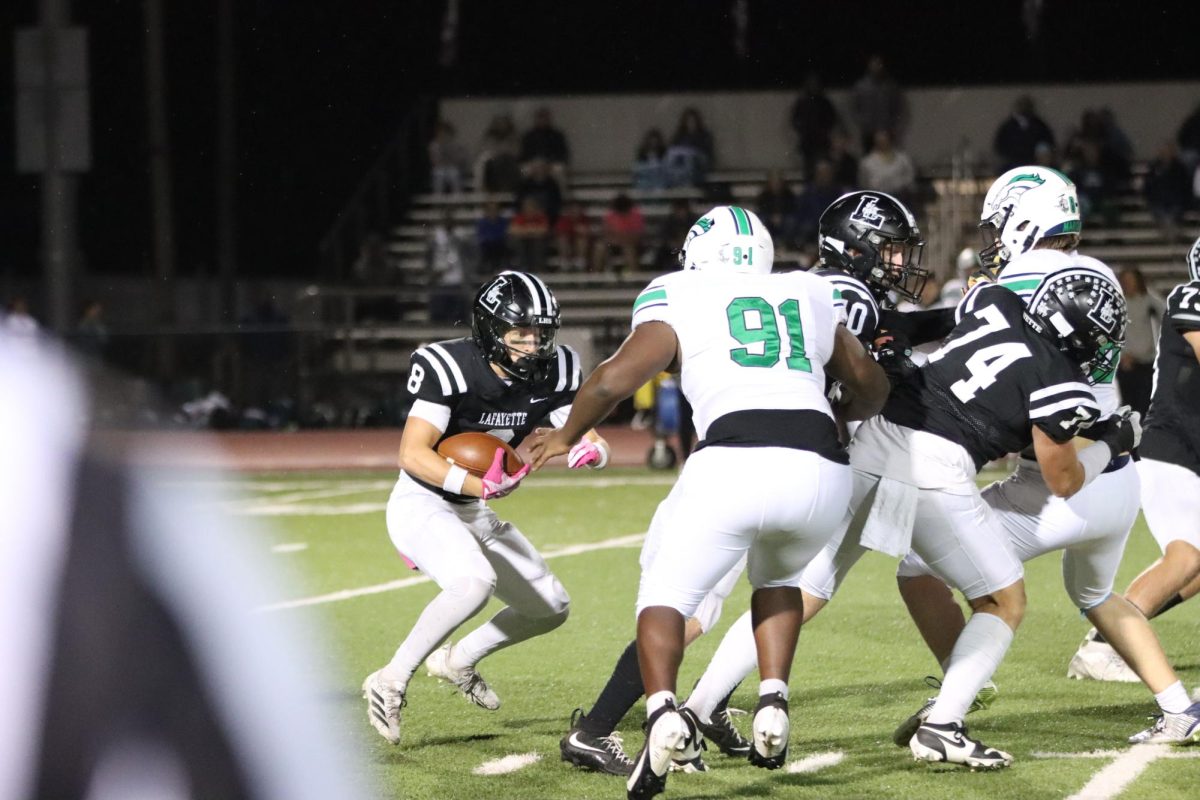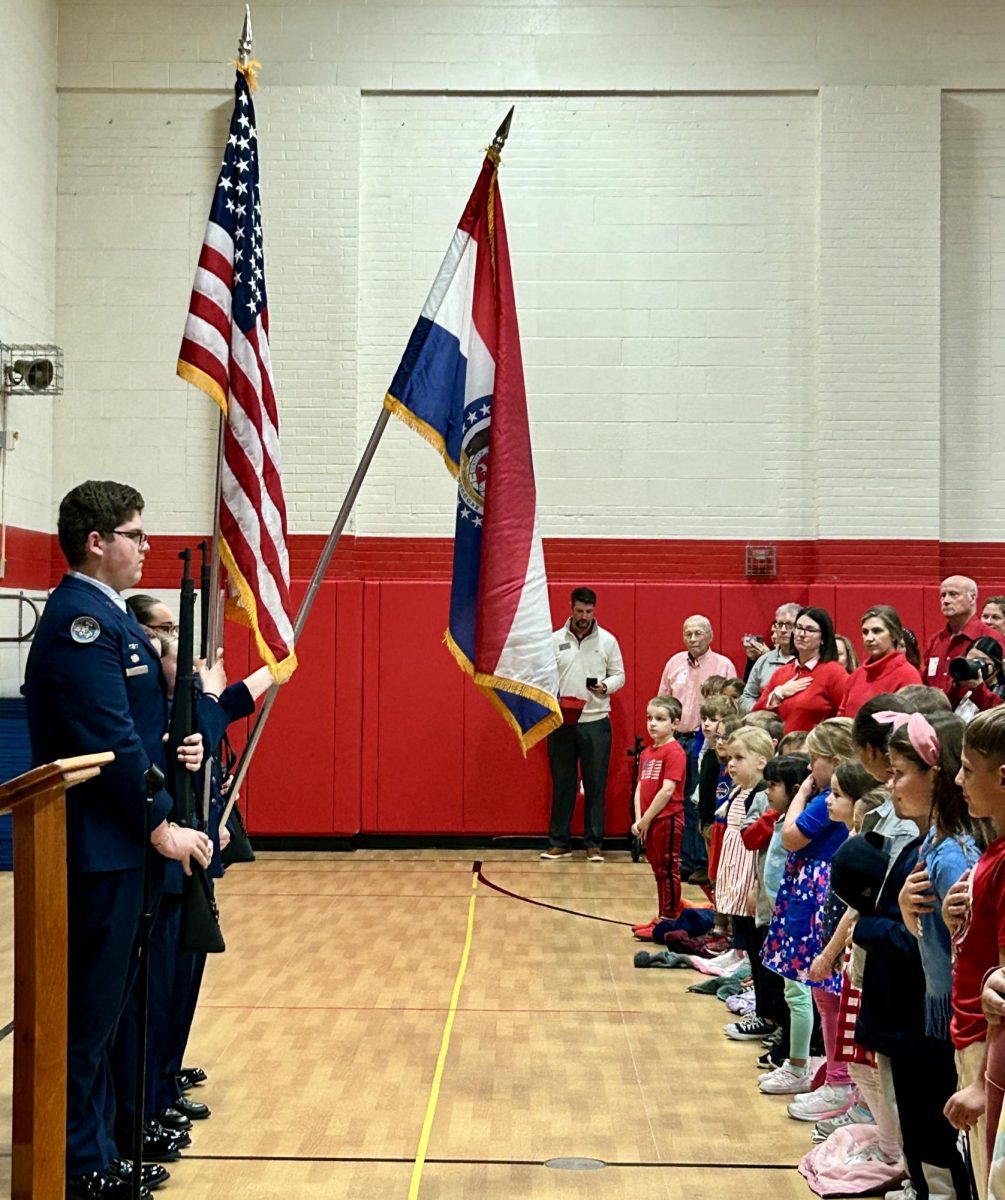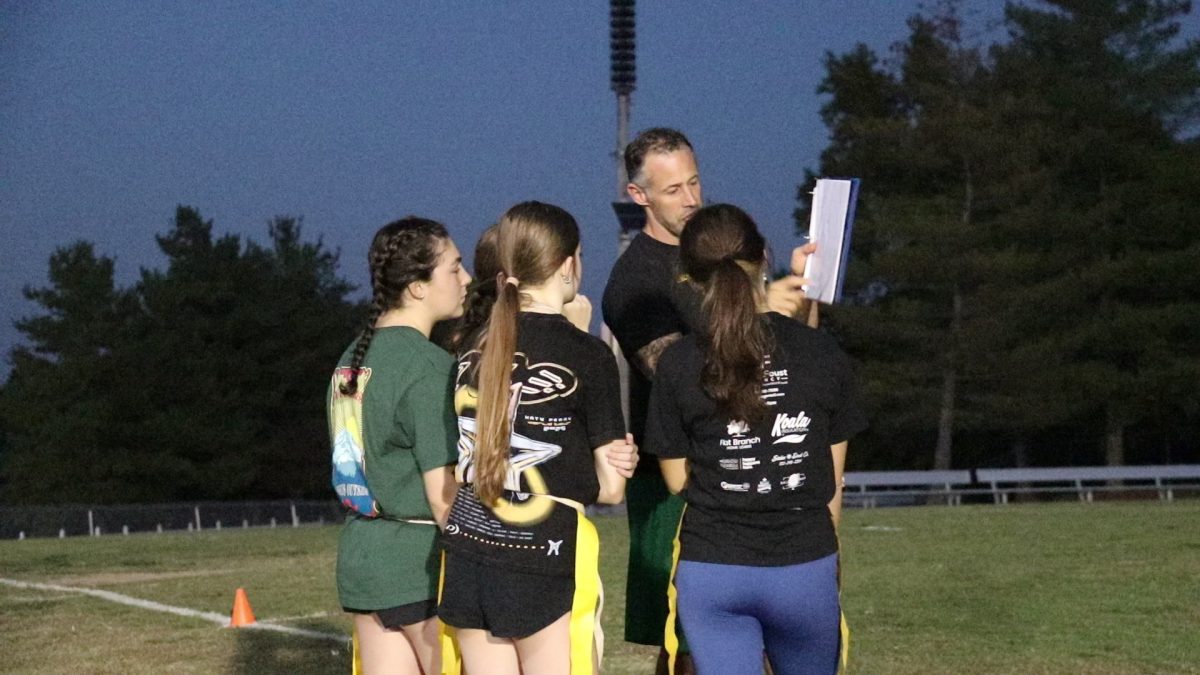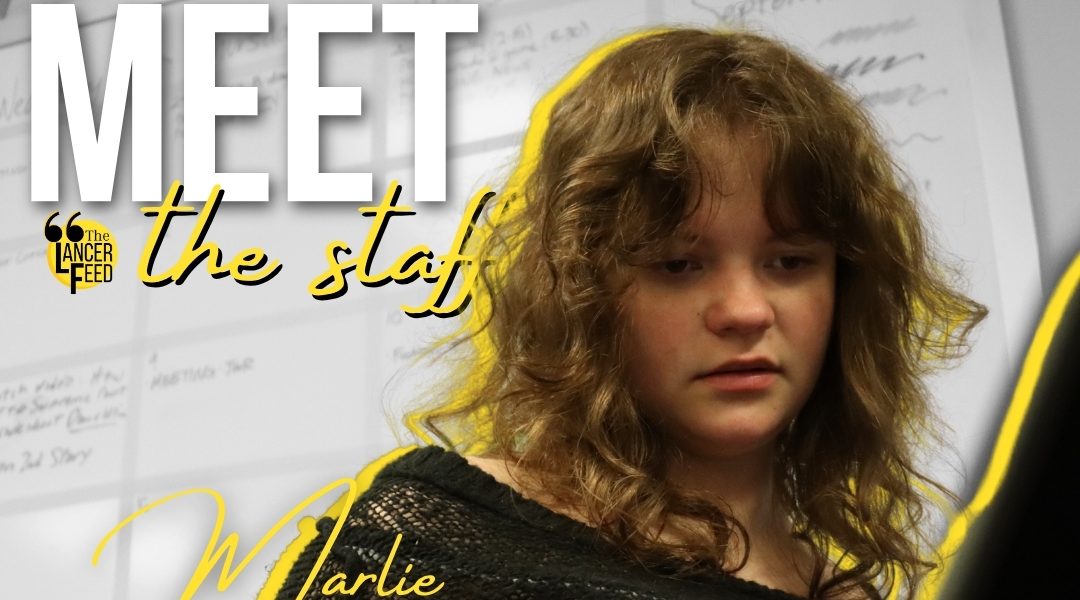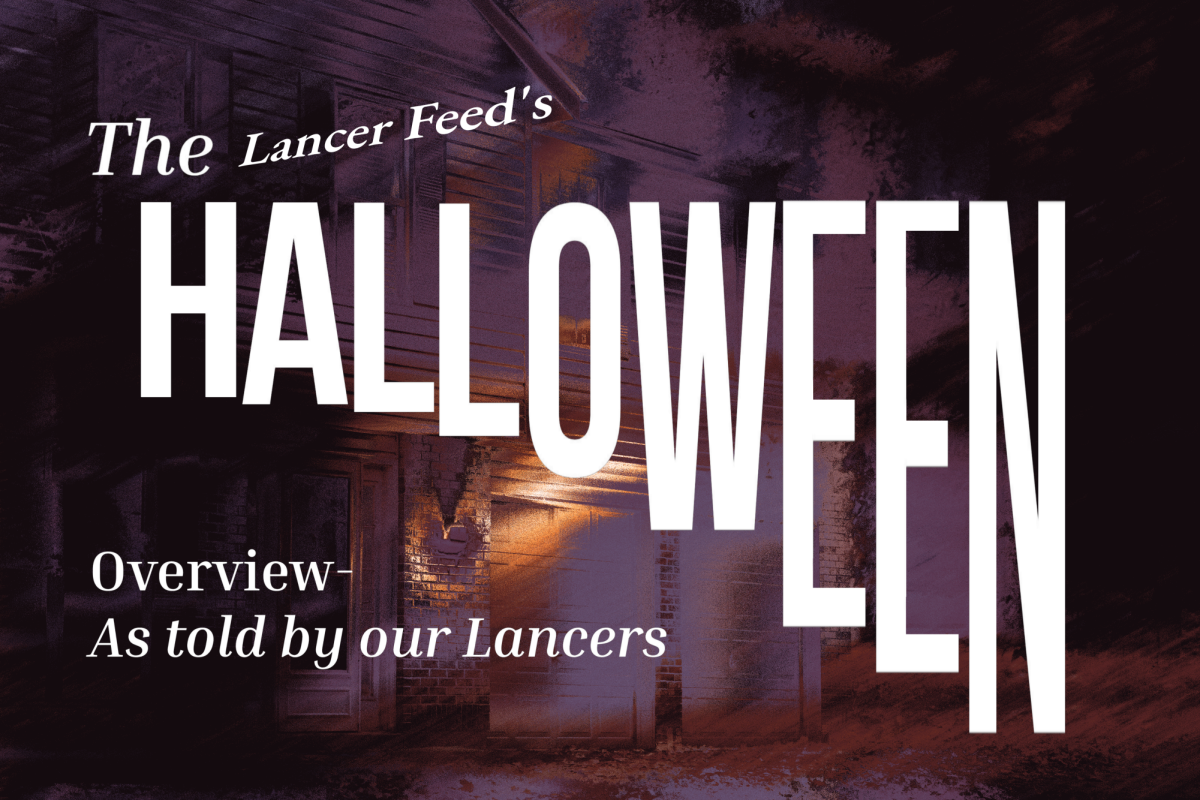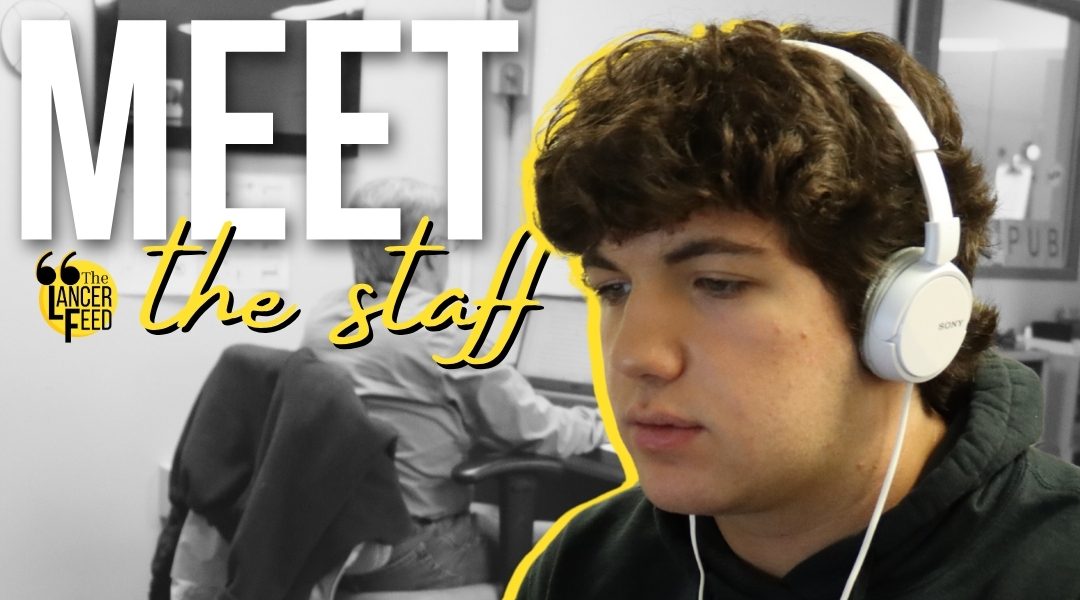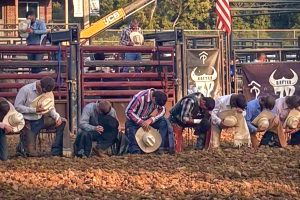ROTC program faces potential loss of funding due to low enrollment
ROTC cadets line up before marching down to the flag located by the football field in order to perform the 9/11 Ceremony on Sept. 11, 2019.
February 3, 2020
On Nov. 4, 2019, the Air Force Junior Reserve Officer Training Course (ROTC) program received a letter of notice, signed by Colonel Stephen Sanders, Director of ROTC at Maxwell Air Force Base, containing the information that the program currently does not meet the required number of cadets in order for the program to continue to receive funding.
The official program inspection occurs every three years, October of 2019 was one of the dates.
According to the Oct. 2019 Program Status Report, 76 cadets are currently enrolled in the program, a decrease from the 98 cadets in the program the previous year. The minimum number of cadets in order to keep the funding for the program is 100.
Due to the low enrollment, the program is at risk of remaining in a state of probation, or even the loss of funding, which would effectively shut the program down.
Lieutenant Colonel James Smith said, “I graduated from here in 1986, I was a cadet in this program, this is my hometown, I grew up here, so I don’t want to see it go anywhere, I’d hate to be at the helm of the decision to shut this program down. The National Air Force Base needs to see the community support ROTC, the cadets need to come, we’re doing everything that we can bring some cadets in here and sustain the program.”
For many students, ROTC has been a place where they are able to find a welcoming community and in some cases, a family. One of these students is Cadet Colonel Vrisha Jagdish.
“This is so much more to me than just a class, I learned so much about leadership and my own values, and I really figured out who I was. I came in as a scrawny freshman who really had no idea where she was in this world, I did come from India so I was having an identity crisis and through the help of the friends that I made and the guidance I got from Colonel and Sergeant, I really found myself and my passion. The class means the world to me,” Jagdish said.
As a senior, Jagdish recognizes that the risk the program is facing doesn’t necessarily apply to her, she still finds that the program has impacted her significantly, and the removal of the program would also be devastating.
“I feel like I’d be losing a child. I don’t know how to put it, it would be a big part of me that I was losing. This was such a big part of my high school, I don’t even know who I would be without ROTC, and if it was gone I would have nothing to come back to. They are my family, I would come back to visit,” Jagdish said. “My sister’s coming into the unit as well and she wouldn’t have that opportunity. I really want other kids that come into high school to have that place to belong and feel secure and ROTC was that for me and I don’t want to take that away from other kids.”
ROTC is a program that focuses heavily on the building of character, as recognized by Smith.
“Integrity is our number one core value, you can’t live by integrity if you’re not adhering to standards, you’ve got to be able to look at yourself in the mirror every day and ask yourself if you are doing it right,” Smith said.
Much of this character building is based on community service, such as school events like Circle of Concern, where ROTC provides cadets with an opportunity to demonstrate leadership skills.
“The program here provides a service to the community, we focus on integrity, service and excellence. The mission statement calls for creating citizens of character through community service,” Smith said, “People need to make up their mind on whether or not they want kids to focus on those kinds of things, and whether or not it is of value to the community, reinforcing those kinds of characters and characteristics. The risk is losing that opportunity.”
Many cadets in the program believe that the lack of understanding of what the actual program is what contributes to the lack of interest in the course. Freshman cadet senior airman Matthew Duncan said, “Whatever you think it [the class] is, you’re wrong. Because a lot of people think that the class is like boot camp or something like that when it’s really easy going, most of the time we’re just having a conversation in class. Uniforms are fun to wear, you think that they’re bad but they’re not. And there is a lot of other stuff that is misunderstood.”
Many comments ROTC cadets are faced with is a lack of understanding when it comes to the uniforms in particular, which all cadets are required to wear every Tuesday.
Freshman Staff Sergeant Makenna Budnick said, “They [students] think we’re weird because we are military based, but there is no obligation to join the military. So people think, ‘oh those people are weird, they’re super military, they’re scary,’ because when I am in uniform I have gotten comments like that. People just don’t understand how close we are and how easy it is to meet new people.”
Budnick recalls how in middle school she struggled to make friends until she joined ROTC in high school, where she was able to find friends in a safe, fun environment. Budnick, along with many other freshmen, sophomore, and junior cadets who have found a home in this program, would be justifiably saddened by the removal of the class.
“I would be really really upset because we are one of the only ROTC [programs] in the state, at least the best, we put a lot of work into our unit and into making it better,” Budnick said.
The ROTC program is kept running by equal funding from Maxwell Air Force Base and the school, so the risk the low enrollment would result in the potential loss of funding from Maxwell Air Force Base if their inspection receives poor scores. However, the quality of Lafayette’s ROTC program has always been what shines through in the end, and what has kept the program alive.
Cadet Lieutenant Colonel Matt Jones said, “We were in the same spot three years ago for our last inspection, we probably had 80 something Cadets, and we exceeded the standards for the inspection, so I’m not too worried about it because we are low in numbers but quality is our policy and that’s what they’re looking for.”
The program has many opportunities for cadets to bond outside of the classroom setting, these experiences have allowed for the cadets to form relationships that are utilized when given tasks to complete.
“It’s more of a family environment. The kids come here before class and after school, and the things that we do, like drill trips, all the new leadership development requirements, all the things we do outside of class and the discussions that we have allowed the cadets to get to know each other on a very personal level and you get to see them not only in a social environment but also in executing tasks that they need to achieve. They work together as a family, but in an organization,” Smith said.
Lafayette’s ROTC program is built around the foundation of building character, and the risk that the program is currently facing, while trivial, is being faced with a leadership attitude and initiative in recruitment for future cadets.
“It’s probably given me the best leadership experience I’ve gotten in my four years of high school, especially this past year being in the executive positions. Whether you’re going into the military or not, it’s a business experience, or it’s a military experience and so it appeals to everyone, it helps everyone become better leaders and Lafayette would be without a lot more leaders without this program,” Jones said.
Cadet Colonel Cassandra Gammill has been in the ROTC program for four years and announces the Pledge of Allegiance every morning, like Jagdish, she recognizes that the loss of the program would affect her and the school detrimentally even though she is graduating and would not be directly affected by the fate of the program.
“ROTC means a lot to me. It means almost everything. In the four years I’ve been in ROTC I didn’t realize, but it had become my life, my past, it dictated my future, I now have a full ride to college because of this class. So, it gives you a sense of purpose, a sense of leadership, a sense of family. I don’t know if there is another class in Lafayette that teaches you quite like ROTC teaches you. Outside activities, inside activities, you can organize fundraisers all by yourself. Stuff that adults can’t really get a grasp on, you can do in ROTC if you have the will to do that,” Gammill said.

